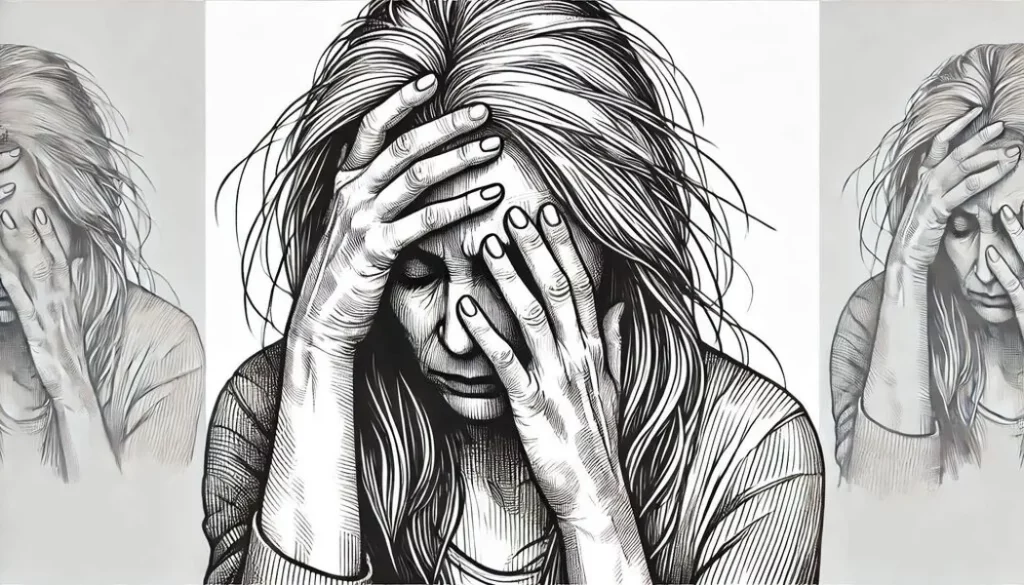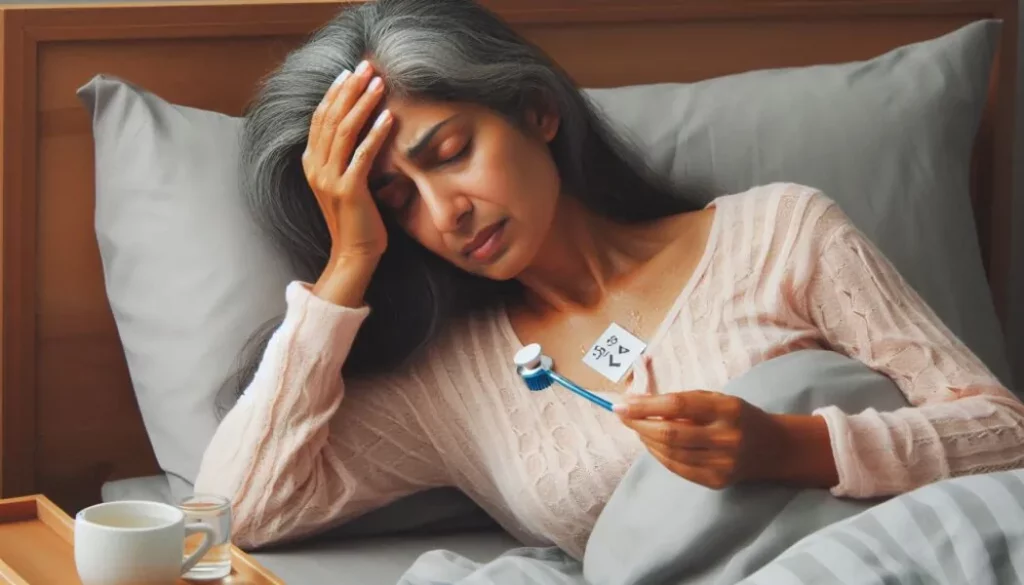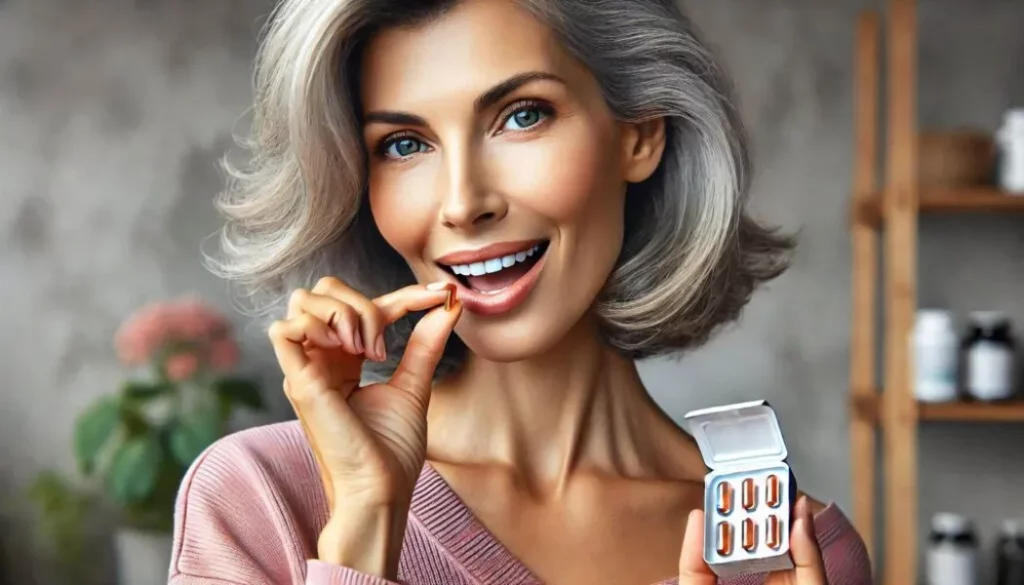Menopause, simply put, is a natural part of life’s journey for women, marking a transition that’s as significant as it is inevitable. It’s like Mother Nature decided to roll out a new game plan, with different rules at a certain point in a woman’s life.
Typically hitting women between the ages of 45 and 55, menopause is that phase when a woman’s reproductive years wind down, presenting a medley of physical and psychological changes. It’s when your body stops the monthly cycle, and while it may seem daunting, it’s just another phase, like switching chapters in the same book.

Now, here’s the kicker: not every woman sails through menopause with the same set of challenges. Some might experience mood swings, while others breeze through without a hitch, just like no two snowflakes are the same. It’s the body’s uniqueness at work!
This phase affects every woman differently due to an interplay of hormones and individual physiological factors. Some might have symptoms just like checking off a list, and others might feel like they skipped chapters entirely. But remember, that’s perfectly okay.
Menopause is a complex orchestra playing different tunes by nature, and understanding it can help prepare for its varied manifestations. Knowledge is power, right? And gathering insights on this natural transition can ease the anticipation or anxiety that can accompany such change.
🌀 Physical and Psychological Changes During Menopause
Menopause can bring on a mixed bag of physical and psychological experiences that vary widely from one woman to another. Some of the physical changes common during this time include hot flashes, night sweats, and that frustrating feeling of unanticipated weight gain. Hair might thin out or start resembling something less full-bodied than before, but don’t worry, there are ways to tackle this.
On the psychological front, mood swings can pop up uninvited, turning emotions into a bit of a rollercoaster ride. It’s not uncommon to feel more anxious or teary-eyed than usual. Sleep patterns can also take a hit, leading to fatigue and affect your overall enthusiasm for the day-to-day.

However, remember this: not every woman experiences all or even most of these symptoms. It’s like grabbing a random set of cards from a deck, with each hand being different. The extent and combination of symptoms are a personal cocktail, shaken by factors unique to each individual.
Acknowledging these potential changes allows you to face menopause with anticipation rather than dread. It can also help to steer conversations with healthcare providers, opening up avenues for coping strategies that resonate better with your personal experiences and lifestyle.
Keep in mind, it’s totally within reach to manage these changes. Assistance is out there and knowing what might come helps in staying prepared, just like packing an umbrella when the grey clouds roll in.
🧖♀️ Menopause and Hair Health: Managing Changes on the Scalp
During menopause, hair might not feel quite like the loyal companion it once was. Changes can include increased hair shedding or thinning and sometimes the vibrant shimmer just takes a backseat. This can be a bit unsettling, but it’s important to know you’re definitely not alone in this.
Combination therapy emerges as a bit of a hero here to help restore that luscious mane. You want to look into using topical treatments alongside lifestyle adjustments—like hitting the double whammy on your hair woes.

Here’s where stress steps in as both a culprit and something you’ll want to manage. Stress has a funny way of making everything feel worse, so keep it in check as much as possible. Consider techniques like meditation or yoga, or even just taking a chill walk in the park to blow off steam.
Then there’s the diet bit. Eating right can’t be overstated. Filling your plate with the right nutrients is key. Staying clear of fast food joints more often and opting for fresh, wholesome meals should be high up on your to-do list. It’s all about balance, so treat yourself, but keep it in check.
Apart from diet, cutting down on alcohol and quitting smoking will do wonders not just for your hair but overall health. Pollution and a sedentary lifestyle can sabotage your efforts too, so staying active—even a short daily walk or quick jog can work wonders. Keep your body moving and you’ll likely see a change.
These lifestyle adjustments are your first line of defense against hair changes during menopause. They help reduce the impact, but adding a bit of science through supplements or innovative therapies like laser treatments can give you that extra edge.
🧪 Combating Hair Loss: Scientifically Proven Solutions
When it feels like lifestyle changes aren’t quite hitting the mark, turning to scientifically-backed solutions might be the next best step. Supplements, for starters, can fill in the nutritional gaps you might miss despite a balanced diet. Look for ones rich in biotin, vitamins A, C, D, and minerals like zinc or selenium. These little helpers support healthier hair and can be a game-changer.
And then there’s laser therapy. It sounds space-age, but it’s actually a tried-and-true method for tackling hair thinning issues. Laser caps, in particular, are safe, effective, and blend seamlessly into everyday life. These chic caps do more than make a fashion statement; they employ low-level lasers that stimulate hair follicles and improve hair density.

The great thing about laser caps is their convenience. You can walk around town or enjoy a leisurely day in the park without anyone being the wiser. They’re designed to look just like any other stylish accessory, so no worry about sporting something that screams medical device.
It’s worth noting, while these solutions might seem new or high-tech, they’ve been proven effective in numerous studies. So why not give them a go? Combining your lifestyle tweaks with these supplements and therapies can boost results, nudging you towards that hair recuperation goal.
🌱 Embracing Change: Encouragement and Motivation
Menopause brings a slew of changes that can feel overwhelming at times. Yet, it’s a phase you’ve been prepared for by life’s very own master plan. It’s your time to embrace these natural shifts and take them in stride.
While the physical and emotional rollercoaster might seem daunting, having the right knowledge and tools can make this transition smoother. You’ve got a mix of lifestyle habits, dietary tweaks, supplements, and even those nifty laser cap treatments in your arsenal. Lean on them, and don’t hesitate to reach out for professional support if needed.
Remember, it’s more than okay to experience change, and it’s all part of a wonderful journey that makes you, you. Every step you take towards managing these symptoms empowers you for a healthier, more fulfilling life.
Keep a positive mindset as you navigate through, and don’t shy away from experimenting with what works best for you. You’re tackling this head-on, equipped with all you need to come through stronger and wiser.
Stay with us — the best is yet to come.
By following our advice, you’re doing the most you can for your hair.
Be the first to know when we publish new guides, tests, and proven strategies for stronger, healthier hair.
👉 Visit the About Me page to learn more about my journey, mission, and why helping people with hair health is so personal to me.
Want healthier, stronger hair? Discover 8 science-backed habits that protect your scalp and boost natural growth. Get your free PDF guide today!
Disclaimer: This article is for informational purposes only and is not a substitute for professional medical advice. Sensitive claims are supported with scientific references, and full product details can always be found on the official websites of the respective manufacturers or distributors.
Some links in this article are affiliate links. If you choose to make a purchase through them, I may earn a small commission at no extra cost to you — helping me keep HairGrowGenius running. Thank you for your support!

✅ FAQ: The Impact of Menopause on Hair Health and Beauty
❓Why does hair thin or lose thickness during menopause?
When estrogen and progesterone levels drop during menopause, hair density and shaft thickness often decrease. This hormonal shift leads to a shortened growth phase and longer resting phase in the hair cycle. Many women notice increased shedding, thinning, and in some cases, pattern hair loss or frontal fibrosing alopecia.
❓What medical treatments are effective for menopausal hair thinning?
Topical minoxidil (2% or 5%) is FDA-approved and clinically proven to promote hair growth in women, including postmenopausal women. Some dermatologists also prescribe oral treatments like spironolactone or finasteride, although finasteride is generally less effective after menopause.
❓Do supplements help improve menopausal hair loss?
Yes — specially formulated nutraceutical supplements for menopausal women can improve hair growth, density, and reduce shedding over several months. Addressing deficiencies in biotin, iron, vitamin D, and zinc can also significantly improve hair health.
❓Can lifestyle or dietary changes make a difference?
Absolutely. A balanced, nutrient-dense diet rich in phytoestrogens (like soy, flaxseeds, and legumes) may help support hormone balance. Managing stress, getting enough sleep, staying hydrated, and avoiding excessive heat or harsh chemicals also protect hair and scalp health.
❓Are there advanced therapies for menopausal hair loss?
Yes. Low-level laser therapy (LLLT), microneedling combined with minoxidil, platelet-rich plasma (PRP), and devices like Tricopat are increasingly used by dermatologists to help stimulate follicles and promote density
❓How soon can women expect results?
Most women begin seeing visible improvements with minoxidil or supplements within 3 to 6 months. Full results from nutraceuticals and lifestyle changes may take up to 12 months. Advanced therapies often speed up progress, especially when used consistently.
🧠 FAQ section added on June 25, 2025, to reflect science-backed solutions for menopausal and postmenopausal hair care.


Leave a Reply